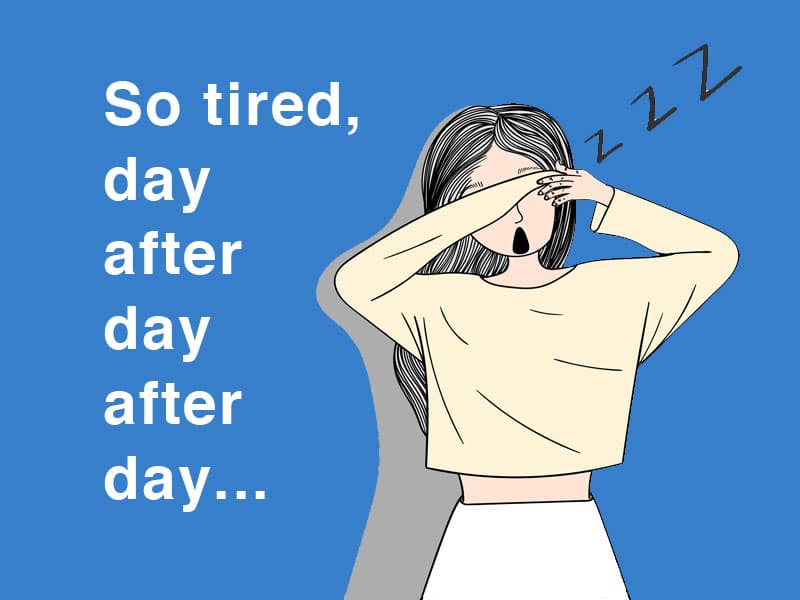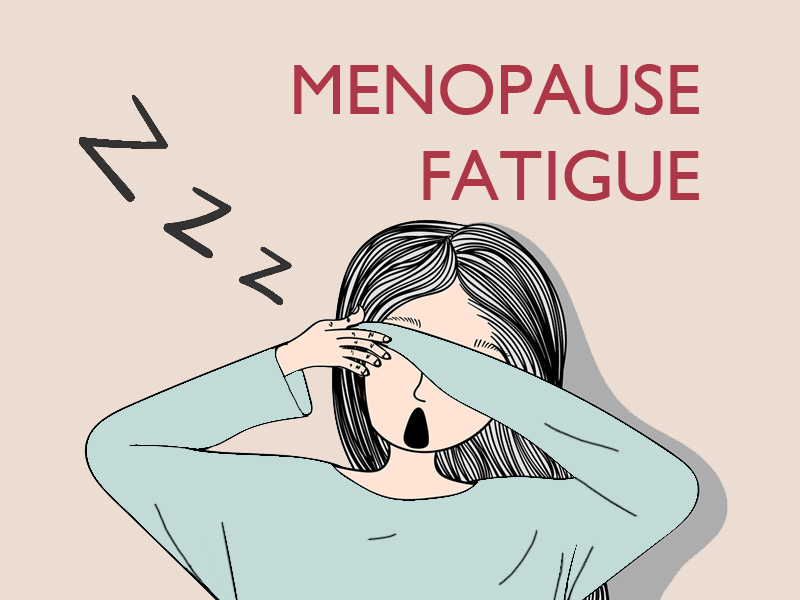Menopause fatigue, a common symptom experienced by many women during this transition, can significantly impact their daily lives. This comprehensive guide explores the physiological changes, hormonal imbalances, and lifestyle factors that contribute to fatigue during menopause, providing practical strategies for managing these symptoms and improving overall well-being.
Overview of Menopause Fatigue
Menopause fatigue is a common symptom experienced by women during the menopausal transition. It is characterized by an overwhelming sense of tiredness and exhaustion that can interfere with daily activities and overall well-being.
Menopause is a natural biological process that occurs as women age. During this time, the ovaries gradually stop producing the hormones estrogen and progesterone, leading to a decline in fertility and eventually, the cessation of menstruation. These hormonal changes can trigger various physical and emotional symptoms, including fatigue.
Physiological Changes and Energy Levels
The physiological changes associated with menopause can significantly impact energy levels. Estrogen, in particular, plays a crucial role in regulating metabolism and energy production. As estrogen levels decline, the body’s ability to convert food into energy may be impaired, leading to feelings of fatigue.
Additionally, menopause can disrupt sleep patterns, contributing further to fatigue. Sleep disturbances are common during this transition due to hormonal fluctuations and other factors such as hot flashes and night sweats.
Other physiological changes that can contribute to menopause fatigue include:
- Decreased muscle mass
- Reduced bone density
- Changes in body composition
These changes can lead to decreased mobility, increased susceptibility to injury, and overall diminished physical capacity, which can further exacerbate fatigue.
Causes of Menopause Fatigue

Menopause fatigue is a common symptom experienced by many women during the menopausal transition. It can significantly impact daily life, making it challenging to perform regular activities and maintain a sense of well-being. Understanding the underlying causes of menopause fatigue can help women develop effective strategies to manage and alleviate this symptom.The
hormonal imbalances that occur during menopause play a significant role in fatigue. As estrogen and progesterone levels decline, the body undergoes various physiological changes that can affect energy levels. Estrogen, in particular, is known to influence sleep, mood, and metabolism.
Its decrease during menopause can lead to sleep disturbances, irritability, and difficulty concentrating, all of which can contribute to fatigue.In addition to hormonal changes, sleep disturbances are a common cause of fatigue during menopause. Night sweats, hot flashes, and anxiety can disrupt sleep patterns, leading to poor sleep quality and daytime fatigue.
The physical and emotional stress associated with menopause can also contribute to fatigue. Stress can increase levels of the stress hormone cortisol, which can interfere with sleep and energy levels.Lifestyle factors can also play a role in menopause fatigue. Poor diet, lack of exercise, and excessive caffeine or alcohol consumption can all contribute to fatigue.
Maintaining a healthy lifestyle, including regular exercise, a balanced diet, and adequate sleep, can help improve energy levels and reduce fatigue.
Role of Estrogen
Estrogen is a hormone produced primarily by the ovaries. It plays a crucial role in regulating the menstrual cycle, maintaining bone density, and supporting cardiovascular health. During menopause, estrogen levels decline significantly, leading to a range of physical and emotional changes.Estrogen
has been shown to influence sleep patterns, mood, and metabolism. Its decline during menopause can disrupt sleep, causing insomnia or poor sleep quality. This can lead to daytime fatigue and difficulty concentrating.In addition, estrogen plays a role in regulating body temperature.
Its decrease during menopause can lead to hot flashes and night sweats, which can further disrupt sleep and contribute to fatigue.
Sleep Disturbances
Sleep disturbances are a common symptom of menopause and can significantly contribute to fatigue. The hormonal changes associated with menopause, such as declining estrogen levels, can disrupt sleep patterns and lead to insomnia or poor sleep quality.Night sweats and hot flashes are common sleep disturbances experienced during menopause.
These symptoms can cause discomfort and awakenings throughout the night, leading to fragmented sleep and daytime fatigue.Anxiety and stress, which are also common during menopause, can further exacerbate sleep disturbances. Anxiety can make it difficult to fall or stay asleep, while stress can increase levels of the stress hormone cortisol, which can interfere with sleep.
Stress
Stress is a common trigger for fatigue, and it can be particularly pronounced during menopause. The hormonal changes, physical symptoms, and emotional challenges associated with menopause can all contribute to increased stress levels.Stress can lead to the release of the stress hormone cortisol, which can have a number of negative effects on the body, including:
- Increased heart rate and blood pressure
- Increased muscle tension
- Difficulty concentrating
- Difficulty sleeping
These effects can all contribute to fatigue and make it difficult to function at optimal levels.
Lifestyle Factors
Lifestyle factors can also play a role in menopause fatigue. Poor diet, lack of exercise, and excessive caffeine or alcohol consumption can all contribute to fatigue.
-
-*Poor diet
A diet high in processed foods, sugary drinks, and unhealthy fats can lead to inflammation and fatigue. Conversely, a diet rich in fruits, vegetables, and whole grains can provide the body with the nutrients it needs to function optimally.
-*Lack of exercise
Regular exercise is essential for maintaining energy levels and reducing fatigue. Exercise helps to improve circulation, increase muscle strength, and boost mood.
-*Excessive caffeine or alcohol consumption
Caffeine and alcohol can both interfere with sleep and lead to fatigue. Caffeine can make it difficult to fall asleep, while alcohol can disrupt sleep patterns and cause dehydration.
Management of Menopause Fatigue

Managing menopause fatigue involves addressing both the underlying causes and implementing lifestyle changes that promote energy and well-being.
Addressing the causes may include treating underlying medical conditions, adjusting medications, or considering hormone replacement therapy. Lifestyle changes focus on improving sleep quality, reducing stress, and promoting overall physical and mental health.
Sleep Hygiene, Menopause fatigue
Establishing good sleep hygiene habits can significantly improve sleep quality and reduce fatigue. This includes:
- Establishing a regular sleep-wake cycle, even on weekends.
- Creating a relaxing bedtime routine.
- Ensuring a dark, quiet, and cool sleeping environment.
- Avoiding caffeine and alcohol before bed.
Stress Management
Stress can exacerbate fatigue. Implementing stress management techniques can help reduce stress levels and improve energy levels. These techniques may include:
- Regular exercise
- Yoga or Tai Chi
- Meditation or mindfulness
- Spending time in nature
Exercise and Nutrition
Regular exercise can boost energy levels and improve overall well-being. Aim for at least 150 minutes of moderate-intensity exercise or 75 minutes of vigorous-intensity exercise per week.
A healthy diet provides the body with the nutrients it needs for energy production. Focus on consuming plenty of fruits, vegetables, whole grains, and lean protein.
Hormone Replacement Therapy (HRT)
HRT can help alleviate fatigue in some women by replenishing the declining levels of estrogen and progesterone during menopause. However, HRT is not suitable for everyone, and its use should be discussed with a healthcare professional.
Impact of Menopause Fatigue on Daily Life

Menopause fatigue can have a significant impact on daily life, affecting work performance, relationships, and overall well-being.Fatigue can lead to difficulty concentrating, decreased productivity, and impaired decision-making, negatively impacting job performance. It can also strain relationships as irritability and emotional outbursts become more common.
Furthermore, fatigue can interfere with daily activities, social interactions, and the ability to enjoy life to the fullest.
Coping Strategies
To cope with menopause fatigue and maintain a fulfilling life, consider the following strategies:
- Prioritize rest:Ensure adequate sleep and take breaks throughout the day to recharge.
- Exercise regularly:Exercise can boost energy levels and improve sleep quality.
- Manage stress:Engage in stress-reducing activities such as yoga, meditation, or spending time in nature.
- Seek support:Talk to family, friends, or a therapist about your experiences to gain emotional support.
- Consider hormone therapy:Hormone therapy can alleviate fatigue in some women.
By implementing these strategies, women can mitigate the impact of menopause fatigue on their daily lives and maintain a healthy and fulfilling lifestyle.
Essential Questionnaire: Menopause Fatigue
What is menopause fatigue?
Menopause fatigue is a common symptom characterized by persistent tiredness, lack of energy, and reduced physical and mental stamina during the menopause transition.
What causes menopause fatigue?
Menopause fatigue is primarily caused by hormonal imbalances, particularly the decline in estrogen levels, which can disrupt sleep, mood, and energy metabolism.
How can I manage menopause fatigue?
Effective management strategies include improving sleep hygiene, managing stress, engaging in regular exercise, maintaining a healthy diet, and exploring relaxation techniques such as yoga or meditation.